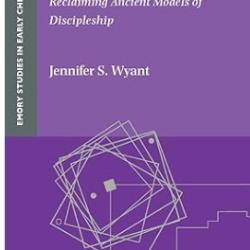This passage is one of a series of challenges that the ?messenger of the Lord?Eissues to the people and priests of Israel. Verses 6-14 are specifically directed to the priests (v. 6). The entire passage is organized in a loosely chiastic structure:
A. The Priests dishonor their Father and master, v. 6
B. Defiled offerings on the Lord?s table, vv. 7-9 (table; lame and sick)
C. Shut the gates, v. 10
C’. Pure offering of future, v. 11
B’. Defiled offerings on the Lord?s table, vv. 12-14a (table, lame and sick)
A’. The Lord is great King, v. 14b
Several general notions of ritual conduct, and specifically sacrifice, are reflected here:
1. The Lord compares himself to a father and master, and the priests to sons and servants (v. 6). In verse 8, further, He compares Himself to the governor. As father, master, and governor, the Lord demands ?honor?Eand ?fear.?E That the priests are to offer honor and fear through proper performance of ritual worship is indicated by verse 7: The reason for the Lord?s rebuke of the priests is that they have ?despised?Ethe table of the Lord by ?presenting defiled bread?Eupon the altar — sacrificial animals that are lame and sick (v. 8; see Leviticus 22:20-25).
2. The connection between ?honoring the Lord?Eand ?offering lawful sacrifice?Ecould be construed in different ways. First, it could mean that sacrifice is itself an act by which homage is give to the Lord. Performing the rite expresses honor for the Lord. Second, the verse could be taken to suggest that honor would be rendered if the priests were diligently to observe the Word of the Lord. Homage is rendered by obedience not by ritual. The act itself would not then be construed as an act of homage; rather, it would honor the Father and Master because it would conform to the Master?s commands and the fact that it involves obedience to a ritual prescription is not significant. The point in this passage is a rather subtle one. The Lord does not rebuke the priests, as He does in other prophetic passages, for offering sacrifice while violating God?s commands in other areas of life. Hypocrisy is not at issue, as if the priests correctly performed the rite but failed to obey God outside the ritual context. Instead, they have violated rules that pertain directly to the ritual; they have failed to honor God because they perform the rites wrongly. Thus, the honor that God craves would be manifested by obedient performance of the ritual.
3. Is the unlawfulsacrifice an external manifestation of an emotion or inner orientation? Is the Lord charging that the fact that the priests ignore the requirements of proper sacrifice is evidence that they despise him in their hearts? Or is their flaunting of ceremonial requirements itself the act of disrespect? The distinction does not seem worth insisting on. The priests fail to respect the Lord by offering Him defiled food on the altar. They would not do so if their hearts were submissive to God. There is no separation of attitude and act. God evaluates the whole action, according to its conformity to objective norms, its motives, and its goals.
4. By offering defiled bread, the priests have ?despised?Ethe name of the Lord (v. 6). This suggests that a sacrifice properly performed also is directed to the ?Name?Eof the Lord. Sacrifice rightly performed exalts or honors the Name of the Lord; sacrifice wrongly performed is despite to His name. This brings sacrifice under the scope of the third commandment, sins against the Name of the Lord. How does sacrifice ?exalt?Ethe Name of the Lord?
5. Verses 8-9 draw an analogy between offering sacrifice to the Lord and offering tribute to the governor. This analogy brings out several dimensions of the purpose of sacrifice. First, the Lord says that a governor who was given the blind, lame, and sick as his tribute would not be pleased with the offerer nor receive him kindly. This suggests that the purpose of the tribute is to do precisely these things: to please the governor and to make him receptive to the offerer. The analogy implies that sacrifice has the same intent in relation to God: to please Him and to ensure that the offerer will be kindly received. Second, in verse 9, the Lord says, ?will you not entreat God?s favor, that He may be gracious to us? This has been from your hand, will He receive any of you kindly??E The rhetorical questions are based on the analogy between offering tribute to a governor and offering sacrifice to God; in both cases, the purpose is to ?entreat?Efavor that one in authority may be gracious.
6. Sacrifice is offered by the ?hand?E(vv. 9, 10, 13).
7. It would be better to shut the gates of the temple and kindle no sacrificial fire than to continue offering sacrifice that displeases God (v. 10).
8. The Lord promises that there will come a time when right ritual will be performed before Him (v. 11). Several questions need to be addressed in this verse. First, does ?from the rising of the sun, even to its setting?Ehave a temporal or spatial reference? Does it mean that right sacrifice will be offered from morning until evening? Or that right sacrifice will be offered from East to West? The emphasis in the verse upon the nations suggests that the geographic interpretation is most directly in view; but the fact that sacrifice was traditionally offered at morning and evening means that the temporal notion cannot be ruled out. Second, there is a clear connection between the global exaltation of the Lord?s name — its ?making greatness?E— and the offering of true sacrifice. This connection is reinforced by the concentric structure of verse 11:
A. Name great among nations
B. Incense offered to Name
B’. Pure grain offering
A’. Name great among nations
What is the nature of this connection? Is the Lord?s name great because incense and grain offerings will be offered? Or are incense and grain offerings going to be offered because the Lord?s Name has become great? Do the ritual acts manifest a prior ?making great?Eof the Name, or is the Lord?s name to be made great through the performance of these acts? The closing clause of the verse begins with ?for,?Esuggesting that the incense and grain offering are a product of the making great of the Name of the Lord. Third, though the concern of verses 6-10 has been with offering defiled animals on the Lord?s table, the prophecy of the future focuses on grain and incense offerings. Perhaps this hints at the cessation of animal sacrifice in the eschatological order. In context, it definitely points to parallels between the animal sacrifices and the offering of grain and incense.















